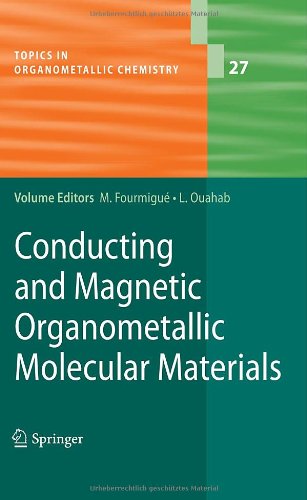

Most ebook files are in PDF format, so you can easily read them using various software such as Foxit Reader or directly on the Google Chrome browser.
Some ebook files are released by publishers in other formats such as .awz, .mobi, .epub, .fb2, etc. You may need to install specific software to read these formats on mobile/PC, such as Calibre.
Please read the tutorial at this link: https://ebookbell.com/faq
We offer FREE conversion to the popular formats you request; however, this may take some time. Therefore, right after payment, please email us, and we will try to provide the service as quickly as possible.
For some exceptional file formats or broken links (if any), please refrain from opening any disputes. Instead, email us first, and we will try to assist within a maximum of 6 hours.
EbookBell Team

4.3
18 reviewsFor several years, the two parallel worlds of Molecular Conductors in one hand and Molecular Magnetism in the other have grown side by side, the former essentially based on radical organic molecules, the latter essentially based on the high spin properties of metal complexes. Over the last few years however, organometallic derivatives have started to play an increasingly important role in both worlds, and have in many ways contributed to open several passages between these two worlds. This volume recognizes this important emerging evolution of both research areas. It is not intended to give a comprehensive view of all possible organometallic materials, and polymers for example were not considered here. Rather we present a selection of the most recent research topics where organometallic derivatives were shown to play a crucial role in the setting of conducting and/or magnetic properties in crystalline materials. First, the role of organometallic anions in tet- thiafulvalenium-based molecular conductors is highlighted by Schlueter, while Kubo and Kato describe very recent ortho-metalated chelating ligands appended to the TTF core and their conducting salts. The combination of conducting and magnetic properties and the search for p–d interactions are analyzed in two comp- mentary contributions by Myazaki and Ouahab, while Valade focuses on the only class of metal bis(dithiolene) complexes to give rise to superconductive molecular materials, in association with organic as well as organometallic cations.